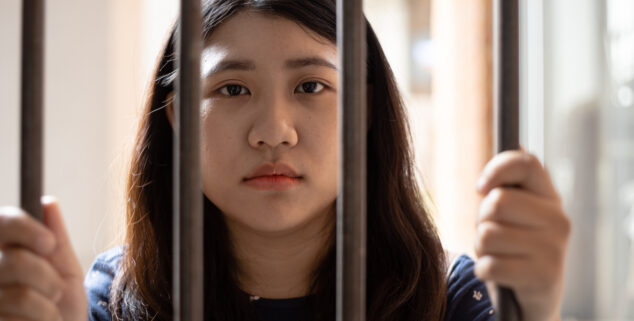Opinion
Transformation, not retrenchment, is the answer to our youth crisis
 Image by coffeekai
Image by coffeekaiOPINION – It is time to end the incarceration of girls and nonbinary or trans youth here in California and set a new model for how we care for our troubled kids.
While Los Angeles County, the largest youth prison system in the country, exemplifies the crisis of youth incarceration, another California county has shown the way forward, led by a movement comprising judicial officials, nonprofit organizations, and young people themselves.
A recent California State Auditor’s report found that LA County is sitting on nearly $80 million in unspent youth rehabilitation funds, even as kids languish in prisons without the most basic programming. A state regulator found that nearly one-fifth of shifts at Los Padrinos juvenile hall in July did not meet legal staffing minimums. Horrifying stories regularly emerge of probation officers sexually exploiting the youth in their care and overseeing a “fight club” among detainees. Pending lawsuits allege 3,800 sexual assaults, going back decades, with settlements likely to cost the County up to $3 billion. State officials have repeatedly threatened to close down the juvenile halls, then backed off at the last minute, even as the County Probation department appears to have given state inspectors fraudulent documents.
Probation union officials have argued that the answer to this rolling catastrophe is for the state to dump more funding into this failed system, but if we look just up the road to Santa Clara County, we can see a far better solution.
Starting in 2015, Santa Clara County has reduced the number of girls in its youth system to near zero and kept it there. They have done this through close collaboration across multiple departments, supportive services like housing and health care, and cooperation with families. Similar efforts across the country in places as diverse as Hawaii, Louisiana, Vermont, Maine, and New York City have likewise been successful.
The Santa Clara model helps girls build relationships and skills through an individualized approach to each case. Research shows that youth who move from incarceration into supportive, trauma-informed settings experience improved mental health, and at no additional cost to the public.
Girls in the justice system are better understood as survivors of crime than as perpetrators, typically imprisoned for minor and age-related offenses such as truancy. They frequently enter the system after serious and repeated trauma, often as victims of child sexual exploitation.
Once inside, the threats of violence and abuse are ever-present. Female health needs such as feminine hygiene products are often unmet. Education and mental health services are hard to access. Whatever trauma these girls brought into the system is typically far worse when they emerge, and they are far likelier to end up in an adult jail or prison.
Youth organizer Ka’lee Mathews has seen the failures of the LA County system up close. Ka’lee was born when her mother was only 17, and she was a young girl when her father was killed by gun violence. She cycled through the foster system, then was shunted by the school-to-prison pipeline into juvenile detention.
“I was judged and bullied,” said Ka’lee. “When I was incarcerated, I lost a bit of myself.”
Now, Ka’lee and other young people who have experienced the youth system are helping to lead the Liberation Fund, a coalition to end girls’ incarceration in LA County. Their efforts are needed — over the last five years, the incarceration of girls has risen by 50%, and arrests have held steady, even as fierce reform efforts have yielded a 50% overall reduction in youth incarceration and a 60% reduction in youth arrests.
Fortunately, the state is positioned to help. Judge Katherine Lucero, one of the leaders of the Santa Clara transformation, now runs California’s Office of Youth and Community Restoration, and her office has designated L.A. as one of four pilot counties to reduce girls and young women’s incarceration towards zero.
Ka’lee’s herself has experienced the transformative effects of supportive, trauma-informed care thanks to her experiences, post-incarceration, with the Young Women’s Freedom Center (YWFC). Now, she is putting those life skills to work as a YWFC fellow, working to engage young teens in both the process of healing and the fight for liberation.
“I do the work that I do for my younger sister and for all the girls who are still in the system,” said Ka’lee.
Ka’lee and her colleagues have the vision to lead us towards a better future. If we fail to follow their lead, the problem lies not with our children but with ourselves.
Shane Murphy Goldsmith is the president and CEO of the Liberty Hill Foundation, home of the Liberation Fund, which aims to end the incarceration of girls and gender-expansive youth in the Los Angeles County criminal legal system
Want to see more stories like this? Sign up for The Roundup, the free daily newsletter about California politics from the editors of Capitol Weekly. Stay up to date on the news you need to know.
Sign up below, then look for a confirmation email in your inbox.

Leave a Reply